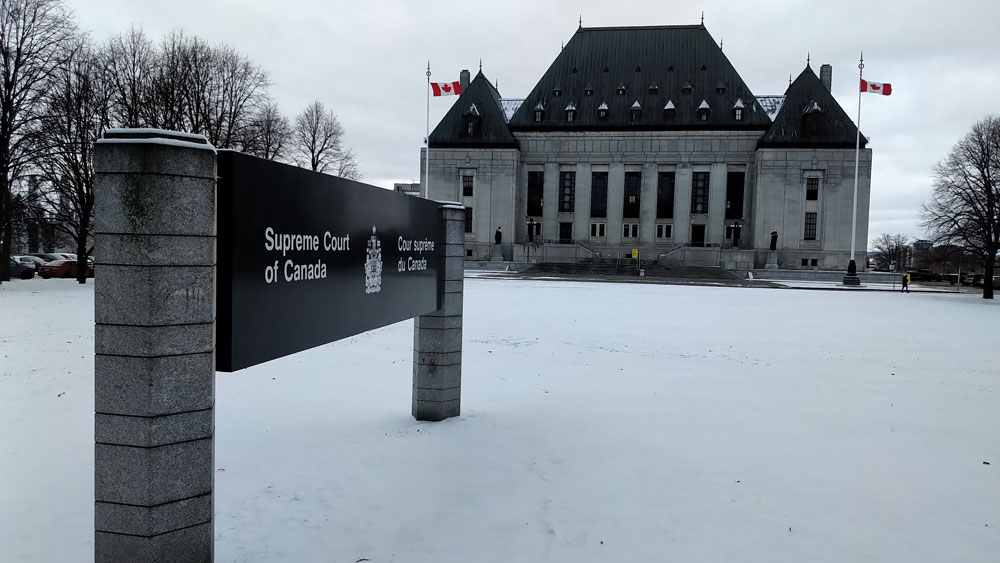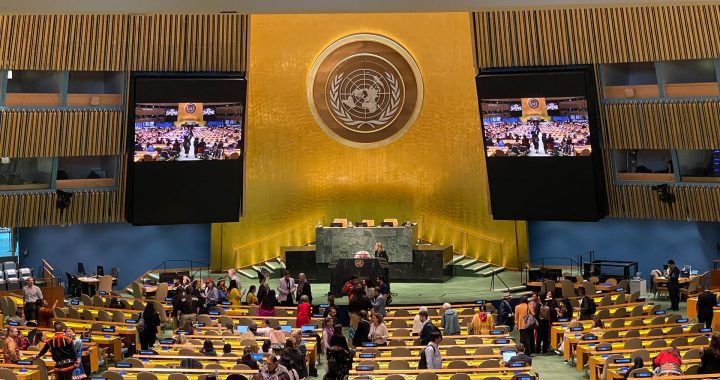
In a unanimous decision handed down Thursday that took only seconds to deliver, the Supreme Court of Canada ruled that British Columbia can’t regulate what flows through the proposed Trans Mountain Expansion pipeline project (TMX) in the province.
Canada’s highest court spent five hours listening to legal arguments and arrived at its decision less than an hour after the last lawyer took their seat.
First Nations that have a keen interest in TMX had intervenor status to ensure their jurisdiction was given due weight, but the swift decision did not mention their concerns.
B.C. argued its constitutional right to protect the environment should allow it to regulate the flow of heavy oil, or any other hazardous substance, through the province.Canada’s lawyers contended that environmental regulation of interprovincial projects like TMX falls under federal jurisdiction.
The justices agreed.
A win for B.C. would have let it quash the multi-billion-dollar project that aims to transport oil to the coast for export to Asia.
The Trudeau government’s stake in the matter is not just legal.
The Liberals purchased the project for $4.5 billion from previous owner Kinder Morgan.Gid7ahl Gudsllaay, a Haida lawyer and artist also known as Terri-Lynn Williams-Davidson, told the court that this question shouldn’t ignore First Nations jurisdiction.
“We’re here to say that Indigenous peoples are part of cooperative federalism, that we have a role to play in exercising our jurisdiction,” she said on behalf of the Council of the Haida Nation.
“We want to ensure that Indigenous peoples are part of that, given the cultural genocide that has occurred throughout Canada’s history.
“Missing from both views is the responsibility of Indigenous Peoples to protect and manage their territories under their own laws, and the requirement that Crown governments provide jurisdictional space for them to exercise these responsibilities,” a Haida factum stated.
“No resolution of the present matter can be complete without making room for the exercise of these rights.”
Along with the Haida Nation, the other three First Nations interveners were Beecher Bay First Nation, Little Shuswap Lake Indian Band, and Heiltsuk Tribal Council.
The Assembly of First Nations (AFN) and numerous others also intervened.“Heiltsuk Tribal Council is here as an Indigenous government with inherent law-making powers over its territories.
It’s also here because Heiltsuk suffered an oil spill,” lawyer Lisa Fong told the justices.“
A day will come when Heiltsuk formalizes self-government with Canada and B.C., so that it may protect its lands and waters through its own mutually-recognized laws,” a factum submitted by the council said.
“Until then, Heiltsuk must rely on Canada and B.C. But the result of the Court of Appeal’s approach is to create a federal enclave, where B.C. cannot improve environmental protections and better protect local communities from heavy oil spills, including First Nations communities who may be most impacted by such spills.”
The proposed expansion pipeline would run roughly parallel to the 1,150 km of existing pipe between Edmonton, Alta., and Burnaby, B.C., nearly tripling the entire system’s oil output.
The current pipeline crosses two treaty territories in Alberta as well as 15 First Nations’ reserve lands in B.C.
Watch more from APTN’s Jamie Pashagumskum
While some First Nations oppose the expansion, others have offered to buy it.
Three coalitions have announced intentions to purchase a stake: Western Pipeline Group, Project Reconciliation, and Iron Coalition.
“Almost 70 per cent of Canadians voted for parties that support the Trans Mountain pipeline expansion,” Chief Delbert Wapass said in Project Reconciliation’s latest news release.
“We were pleased to see the prime minister re-commit to the expansion, and know he wants Indigenous ownership.”
The Western Pipeline Group wants a 51 per cent stake.
“We’re not afraid of pipelines or oil, we’re afraid of irresponsible resource extraction,” Mike LeBourdais, a representative of the group and an elected chief of a B.C. First Nation, told APTN News last year.
During the hearing, Justice Malcolm Rowe questioned B.C.’s regulations, saying they could also extend to conventional oil and thus “shut down the petroleum industry entirely.
“Heavy oil today, anything else tomorrow,” he said.
Kinder Morgan sold the pipeline to the federal government after B.C. announced the new regulatory legislature.
The B.C. Court of Appeal ruled against John Horgan’s NDP government last May.
Five judges unanimously ruled that B.C.’s constitutional right to protect its environment does not permit interference with a federal project like TMX.Julie McGregor, an Anishinaabe lawyer for the AFN, said the past decision failed to fully acknowledge First Nations’ concerns.
“It was not the first time First Nations have been excluded from important decisions that impact them, but this day and age in which we are attempting to reconcile past injustices, I would submit, a good starting point is not repeating the same mistakes of the past.”









